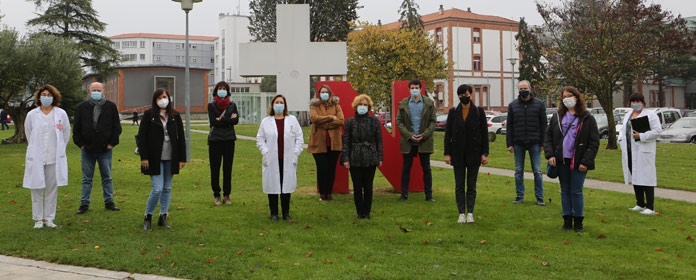Ten companies from Navarra start project NUTRI+ to improve nutrition for the elderly and people with special needs.
The research has been selected in the call for strategic projects research and development of the Government of Navarra and will be developed until 2022.

PHOTO: Manuel Castells
Ten companies in the region have launched the project NUTRI + in order to develop foods for the elderly and / or people with swallowing problems and other population groups with specific nutritional deficits. The research, which will run until November 2022, has been selected by the Government of Navarra within the call for strategic projects research and development. This call selects projects that address strategic challenges for Navarra, in this case, in the areas of Personalized and Sustainable Food.
"Good nutrition is essential to prevent the onset of pathologies and improve the quality of life of vulnerable populations with specific needs. Among them are those over 70 years of age, people with intellectual disabilities, mental illness or who have suffered some subject of brain damage injuries such as stroke, paraplegia or tetraplegia," explains Diana Ansorena, professor at the University of Navarra and researcher at project.
The purpose of the different groups of research is to develop ingredients, foods and diets nutritionally balanced and/or with healthy functional profile , with textures adapted to chewing and swallowing problems, and visually attractive.
Both private companies and public entities from different fields and sectors, as well as agents of the Navarra System of research and development+i, SINAI, collaborate in the project NUTRI+. The consortium is led by Domusvi, the largest network of nursing homes, disability and mental health care centers, and day care centers in Spain. Also participating are ADACEN (association de Daño Cerebral de Navarra), companies from the agri-food sector such as Frisa, group alimentary IAN, Tutti Pasta and Cocuus; public institutions such as the Navarra Hospital Complex and entities from research such as the University of Navarra, CNTA and SINAI's own coordinator , ADItech.
development of textures through 3D printing, high pressure and other technologies."In CNTA we will investigate on the development of textures adapted for this population subject , relying on technologies such as 3D printing-laser-injekt, high pressure or new texturizers and analytical methods such as rheology," says researcher Leyre Urtasun.
On the other hand, the functionality of the nutrients of interest will also be studied, using cell culture techniques and/or assays in more complex organisms such as Caenorhabditiselegans. "All this with the aim of contributing to improve the health of people with swallowing problems and, consequently, their quality of life" adds Nerea Sastre, from CNTA.
Thus, during the first phase of project the nutritional and sensory needs required by the populations goal will be investigated. Based on the information obtained, products will be developed which, in a later phase, will be evaluated in the health centers to check whether the objectives set are really being achieved.
